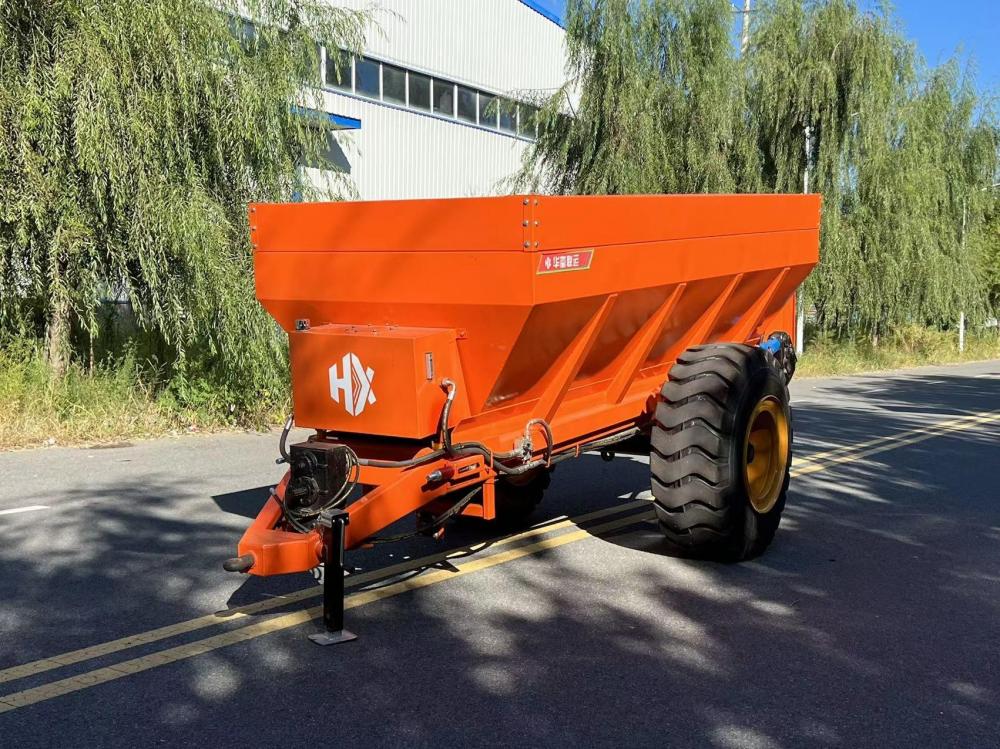1. Efficient Manure Collection and Distribution
The integration of fecal spreaders into animal husbandry operations represents a significant leap forward in manure management, fundamentally transforming the way in which this vital resource is handled. Traditional methods of manure collection and distribution often relied heavily on manual labor, which was not only time-consuming and labor-intensive but also prone to contamination risks and inefficiencies.
Fecal spreaders, on the other hand, introduce a level of mechanization that greatly enhances the efficiency and precision of the process. Equipped with advanced designs and powerful engines, these machines are capable of swiftly traversing animal pens, gathering manure with minimal disruption to the animals' routine. The mechanized nature of these spreaders significantly reduces the reliance on manual labor, freeing up valuable time and resources for other farm tasks.
Moreover, the transfer process is streamlined and safer with fecal spreaders. By minimizing the need for workers to come into direct contact with the manure, the risk of contamination and potential health hazards is drastically reduced. This not only protects the health and safety of farmworkers but also ensures that the manure remains clean and free from impurities that could compromise its value as a fertilizer.
The precision distribution capabilities of fecal spreaders are another key advantage. Unlike manual methods, which can result in uneven application of manure, these machines are equipped with sophisticated controls that enable farmers to accurately and uniformly distribute manure across fields. This ensures that crops receive the optimal amount of nutrients at the right time, promoting healthy growth and maximizing yields.
Furthermore, the efficiency of manure collection and distribution has a ripple effect throughout the farming operation. By reducing the time and effort required for manure management, farmers can devote more attention to other critical aspects of their business, such as crop management, animal health, and marketing strategies. This, in turn, leads to more productive and profitable farming operations overall.
2. Enhanced Soil Health and Fertility
Properly managed manure is a rich source of organic matter, nutrients, and micronutrients essential for soil health and crop growth. By spreading manure using specialized equipment, farmers can tailor nutrient inputs to match crop requirements, reducing the need for synthetic fertilizers. This not only enhances soil structure and fertility but also promotes biodiversity, leading to healthier ecosystems and more resilient agricultural systems.
3. Reduced Environmental Impact
Uncontrolled manure accumulation can lead to water pollution, air emissions, and greenhouse gas emissions. Fecal spreaders facilitate timely and controlled manure disposal, minimizing these environmental risks. By incorporating manure into soil as a fertilizer, farmers can effectively sequester carbon and reduce the release of ammonia and other harmful gases. Additionally, proper management reduces the likelihood of runoff and leaching, protecting water bodies from contamination.
4. Cost-Effective Resource Recycling
Converting manure into a valuable fertilizer represents a cost-effective form of resource recycling. Rather than treating manure as a waste product, farmers can leverage its nutrient content to reduce their reliance on commercial fertilizers. This not only saves money but also aligns with the principles of circular economy, where waste is minimized and resources are reused to their fullest potential.
5. Improved Animal Welfare
Regular cleaning of animal pens using fecal spreaders helps maintain a hygienic environment, which is vital for animal health and welfare. A clean living space reduces the risk of disease transmission and promotes overall well-being. Moreover, the absence of excess manure can improve air quality, reducing respiratory issues for both animals and workers.
6. Promoting Sustainable Agriculture
The adoption of fecal spreaders in animal husbandry is a step towards more sustainable agriculture practices. By reducing the environmental footprint of manure management and enhancing soil health, farmers contribute to the long-term sustainability of their operations. This approach aligns with global efforts to mitigate climate change and promote environmental stewardship.
7. Versatility and Customization
Fecal spreaders come in various sizes and configurations, allowing farmers to select the most suitable model for their specific needs. From small-scale operations to large-scale farms, these machines offer versatility and can be customized to fit different types of terrain and manure consistency. This ensures that farmers can implement effective manure management strategies tailored to their unique circumstances.
In conclusion, fecal spreaders represent a game-changing technology in animal husbandry, transforming manure treatment into a resource recycling opportunity. By enhancing soil health, reducing environmental impact, promoting animal welfare, and supporting sustainable agriculture, these machines offer numerous advantages that contribute to the overall sustainability and profitability of farming operations.
In addition to livestock, Fecal spreader was important in agriculture. It supported sustainable agriculture by improving soil health and reducing environmental impact. In agriculture, choosing a suitable Manure Spreader was important. Large Farm Manure Spreader and Small Manure Spreader were available in Huaxi, which also contributed to the overall sustainability and profitability of the farming operation. 






